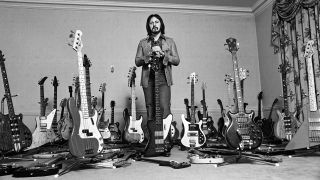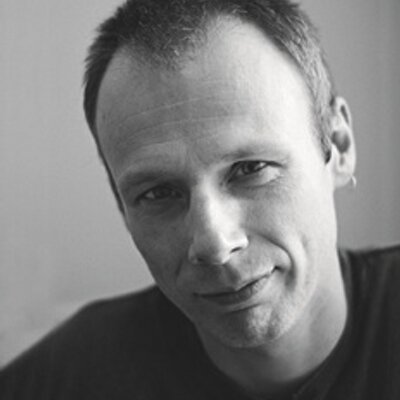For the greater part of the last six years of his life, John Entwistle appeared to be thoroughly content with his lot. He entered into a new relationship with his friend Joe Walsh’s former girlfriend, Lisa Pritchett-Johnson. When not working he could often be found frequenting the pubs or pottering about the antique shops of Stow-on-the-Wold, a small market town close to Quarwood. He even paid for a new roof for the Stow Cricket Club pavilion.
Now, though, he was not the Ox of days gone by. His hearing was all but shot and he suffered from high blood pressure. His wan appearance at The Who’s show at the Albert Hall in February 2002 alarmed friends, but he passed a medical required for insurance purposes for the American tour lined up for that summer.
One Tuesday morning that June, Chris Entwistle drove his father to the airport to catch a flight to Las Vegas to begin that tour.
“I gave him a kiss goodbye, as I always did,” he recalls. “He turned around when he got to the door of the terminal, we waved to each other and that was the last time I saw him.”
John Entwistle spent the evening of June 27, 2002 with friends, among them Alyeen Rose, an exotic dancer he knew from previous visits to Vegas. He took Rose to his room at the Hard Rock Hotel, where he did a line of coke and they had sex. Some time during that night, he had a heart attack and died in his sleep.
“It turned out that one of his arteries was a hundred per cent blocked, and another seventy-five per cent,” reveals Chris Entwistle. “High blood pressure is a family trait. His mother had it, as do I, but we had no idea about the problems with his heart, and nor did he. We were told they would only have been found out with an electrocardiogram, which he never had because it hadn’t seemed necessary. He was very rarely ill.
“You know what, though? It wasn’t the worst way to go. It could have been a prolonged illness. One of the things I was most appreciative of, the doctor who performed the autopsy told me that he wouldn’t have felt a thing.”
John Entwistle’s funeral was held at St. Edward’s Church in Stow on July 10, 2002. In his will he split his estate equally between his mother, his son and Lisa Pritchett-Johnson. Pritchett-Johnson continued to live in a cottage on the Quarwood grounds after Entwistle’s passing, but had to move out when Chris Entwistle was forced to sell his father’s home to meet the crippling death duties.
“The Inland Revenue decided that everything dad owned had a value, including each item of clothing and his personalised car number plate,” he explains. “And they wanted forty per cent of it, thank you very much. The problem was that most of dad’s money was in stuff. For instance, over the years he had invested in a massive guitar collection, which was going to be worth a lot of money down the line, but that was a bad time to have to sell.”
Today, Alison Entwistle says that when she thinks back on her life with her late former husband, most often it is to the time their son was born. “John was so thrilled,” she says. “He was there when I gave birth at Queen Charlotte’s Hospital. I loved him for years and years, so you can never get rid of those feelings. He was a silly boy, but also very generous, warm-hearted and very, very talented.”
“I would like dad to be remembered as the best bass guitarist that the world has ever known,” Chris Entwistle concludes. “That’s who he was, the guy that stood there and got on with the job.
“I haven’t seen Pete or Roger in God knows how many years now, because I won’t go to Who gigs any more. Not because of them – I’m firmly behind the boys carrying on as long as they want. I just can’t handle the fact that dad’s not there on his side of the stage, where he should be.”


